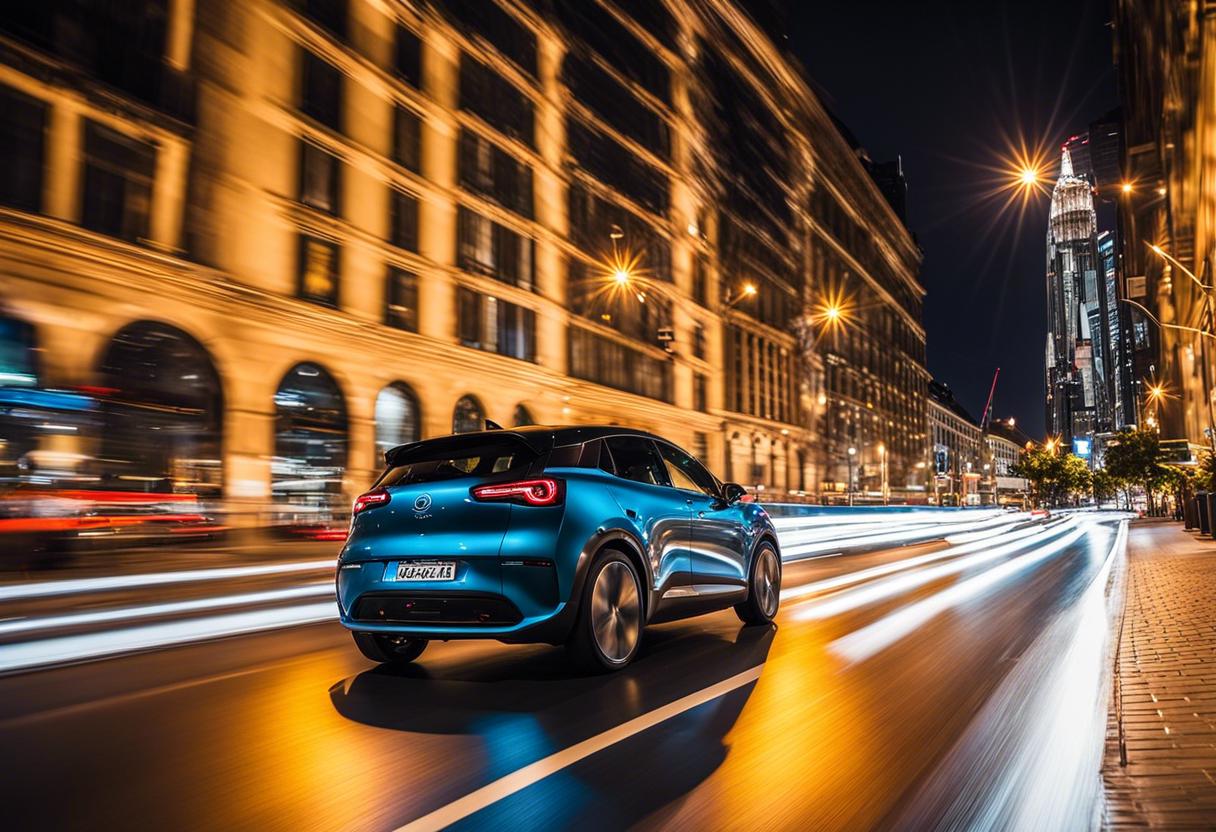Just a month after iPhone’s maker ditched its Apple Car project, the world’s third-largest smartphone producer has made a bold move to break into the top-five of car manufacturing ‒ launching its first electric vehicle (EV). China-based Xiaomi unveiled its Speed Ultra 7 sports sedan at a Beijing event, declaring a competitive initial asking price of Rmb215,900 (€27,686) and availability across its nationwide stores from this week. This comes in contrast with Tesla’s Model 3, which has a price tag of Rmb237,900.
Xiaomi’s billionaire founder and CEO, Lei Jun, criticised Apple’s move to abandon their car project and claimed Xiaomi’s EV venture to be his final business endeavour. However, despite the anticipation, Xiaomi’s car launch comes amidst a severe price war in China and a plethora of alternatives for customers that potentially hampers its progress.
EVs currently account for about one-third of all new car sales in China, the world’s largest car market. Industry analysts and executives have predicted a consolidation phase affecting both traditional carmakers and new market entrants. Concerns are mounting in the US and Europe about a potential influx of Chinese EV exports disrupting their markets if domestic demand in China slows down, triggering anxieties over unfair trade practices and potential threats to national security.
Xiaomi’s first car took only three years to develop, underscoring the rapid evolution of China’s leading EV industry and tech firms’ drive to capture market share. Huawei, another top Chinese smartphone producer, has also been advancing with its Aito brand, its M7 model being the fourth most popular EV in China to date this year.
Xiaomi faces competition from traditional car manufacturers like Tesla, BMW, BYD and Geely’s Zeekr, who have resorted to price slashing, an analyst from the China Automobile Dealers Association Expert Committee, Li Yanwei, observed, leaving little room for Xiaomi’s SU7.
Xiaomi’s SU7, touted as a “dream vehicle”, is predicted to give strong competition to the likes of Tesla and Porsche with its superior acceleration, as emphasised by Xiaomi’s Lei. A commitment of a $10 billion investment stretched over ten years into the EV venture has been promised by him, with the ambition to rank amongst the top five global car manufacturers in the ensuing 15 to 20 years. “The primary goal of Xiaomi Auto is to elevate China’s automobile industry,” expressed Lei.
Referring to the distinctive approach of Chinese businesses, Tycho de Feijter of Dutch think-tank Clingendael mentioned, “Chinese firms are willing to venture into uncharted territory whilst mega-corporations like Apple struggle with fast decision-making.”
Offering a unique sync with its established smartphones and household appliances like air conditioners and rice cookers, the five-seat SU7 offers users the luxury to manage various devices on the go. As Yale Zhang, founder of the Shanghai-based advisory firm, Automotive Foresight puts it, “A company with its own smartphone product and operating system (OS) undoubtedly gives it a connectivity edge over traditional automobile manufacturers”.
However, market experts also highlight the mismatch between Xiaomi’s existing value-oriented clients and the projected SU7 consumers, described as tech-savvy and discerning by Lei.
Since its inception in 2010, Xiaomi has cultivated a brand image synonymous with affordability, still managing to offer top-notch features at a reasonable price, even with a steady move into the high-end smartphone market in recent years. The perception as an economical device provider is far from fading. “Is it conceivable for a user of an Rmb1,000 Xiaomi phone to afford an EV tagged at over Rmb200,000?” questioned Zhang.
Xiaomi’s expertise in managing a supply chain in the consumer electronics manufacturing industry is proving beneficial in its car venture. The SU7 boasts a remarkable 830km range on a single recharge and accelerates from zero to 100km/h in 2.78 seconds, sporting a top speed of 265km/h. These features are results of what Ivan Lam of Counterpoint Research labels as “perfect” partnerships with giants such as CATL and BYD (battery suppliers) and Inovance (electric motor manufacturer).
Lam pointed out that Xiaomi, despite its lack of extensive experience in the automotive industry, is a master of supply chain operations, entering the competitive scene at a point when it has become fairly stable. Xiaomi’s annual financial figures demonstrate that its core business of smartphones is still generating solid cash flow, which can finance its Electric Vehicle (EV) venture which is yet to make a profit.
As a publicly traded company, it’s imperative for Xiaomi to seek out the next area of potential significant growth, Lam added. The automotive market is magnitudes larger than the smartphone sector, being roughly ten times the size.
In addition, Xiaomi has secured the approval of the Chinese government, a rare feat for late entries into China’s EV sphere. In response to an oversupply in an industry currently embroiled in a cutthroat price competition, Beijing has tightened control over licensing.
However, Xiaomi managed to get permission for its collaboration with state-run car manufacturer BAIC to produce cars in a factory situated on the outskirts of Beijing, that can produce an SU7 every 76 seconds.
Auto analyst de Feijter noted that arriving late to the party sometimes adds a hint of novelty, which can be appealing. He explained that China’s EV market remains vibrant with sufficient room for growth for new brands. Copyright The Financial Times Limited 2024.

